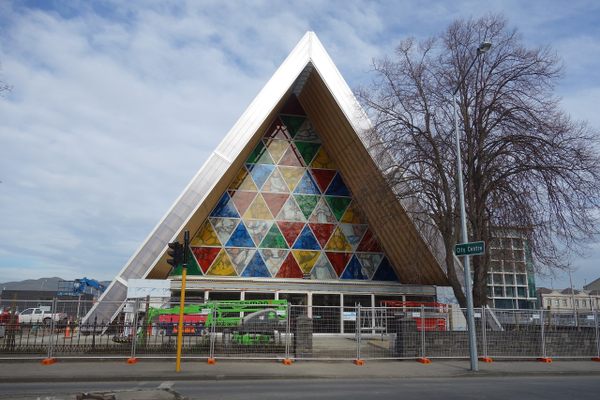In February 2011, Christchurch suffered a devastating earthquake, which destroyed large parts of the city and led to the tower of the city’s historic Neo-Gothic cathedral collapsing. Further aftershocks destroyed its iconic stained glass, making the church unusable and leaving parishioners without a place to worship.
A few weeks after the earthquake, one of the cathedral’s staff members read an article about a Japanese “emergency architect” named Shigeru Ban. Following the earthquake in Kobe, Japan, Ban designed a cardboard church to replace one that had been destroyed. Ban visited Christchurch and offered to create a similar cardboard cathedral in New Zealand. Two years later it became a reality.
Made of thick cardboard tubes, local wood, and steel, with a floating concrete floor, the Transitional Cathedral serves as the church’s home until funds can be raised to fully rebuild the original. Ban donated his architectural expertise, and the use of simple building materials enabled the construction to be completed much faster and more affordably than a traditional church. It’s also built to 130 percent of the current New Zealand earthquake code, making it very safe. At full capacity, it can seat nearly 700 people.

